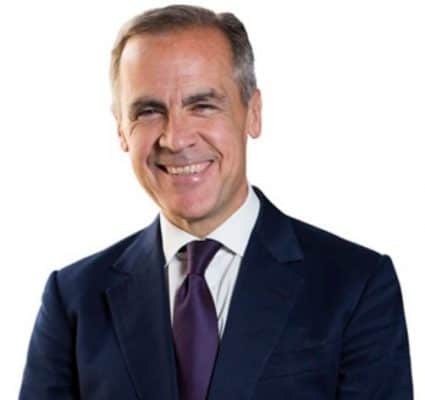The Bank of England (BoE) and the Treasury are in talks about keeping Mark Carney on after June 2019. Mark Carney is the Governor of the Bank of England. His current departure date is June 2019.
The British Government, specifically the Treasury, does not want to be seeking a new governor during Brexit talks. Brexit stands for BRitain EXITing the European Union.
New candidates will need to have a clear view of the UK’s relationship with the EU. He or she will also need a clear view of the BoE’s relationship with its EU counterparts.
Carney plans to leave in June 2019
According to the British Prime Minister’s spokesman, the BoE’s governor plans to step down in June 2019.
According to BBC News, Whitehall believes that Mr. Carney might be willing to say on until June 2020.
The Financial Times says that Mr. Carney is positive about an extension, so those close to him believe.

BBC Economics Editor, Kamal Ahmed, wrote:
“My sources say the possible extension is more to do with the next governor and who the Treasury think they can attract to the post given the present state of the Brexit negotiations, rather than whether Mark Carney staying will reassure the markets.”
Investors and financial experts, however, say that during a period of uncertainty, the current BoE governor is a reassuring figure.
Appearance before Treasury Committee
On Tuesday, Mr. Carney will appear before Treasury Committee MPs (members of parliament). MPs will ask him about his plans and intentions.
The Governor of the Bank of England initially committed to a five-year contract. In October 2016, he said he would leave in June 2019; one year later than the initial agreement. However, most governors stay for much longer.
Sir Mervyn King, for example, was Governor for ten years (2003 to 2013). Sir Edward George and Robin Leigh-Pemberton were governors for ten years each (1993-2003 and 1983-1993 respectively).
If we also include Gordon Richardson (1973-1983), the last four governors stayed for a decade each.
The Bank of England is Great Britain’s central bank. It is in charge of the country’s money supply, interest rates, and currency. It is in charge of how Britain’s money functions.
